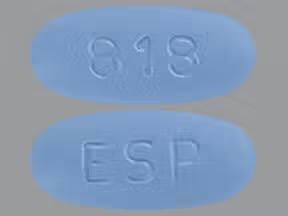Nexlizet Disease Interactions
There are 5 disease interactions with Nexlizet (bempedoic acid/ezetimibe).
Ezetimibe (applies to Nexlizet) liver disease
Major Potential Hazard, High plausibility.
Ezetimibe is not recommended for use in patients with moderate to severe hepatic impairment (Child-Pugh B or C) due to the unknown effects of increased exposure in this population.
Bempedoic acid (applies to Nexlizet) hepatic impairment
Moderate Potential Hazard, Moderate plausibility. Applicable conditions: Liver Disease
Bempedoic acid has not been studied in patients with severe hepatic impairment (Child-Pugh C), therefore, caution is advised if used in these patients. No dosage adjustment is needed in patients with mild or moderate hepatic impairment (Child-Pugh A or B).
Bempedoic acid (applies to Nexlizet) hyperuricemia
Moderate Potential Hazard, Moderate plausibility. Applicable conditions: Gout
Bempedoic acid can elevate serum uric acid. Caution is advised in patients with a history of gout. Assess uric acid levels periodically and monitor any signs or symptoms of hyperuricemia.
Bempedoic acid (applies to Nexlizet) renal impairment
Moderate Potential Hazard, Moderate plausibility. Applicable conditions: Renal Dysfunction
There is limited experience with the use of bempedoic acid in patients with severe renal impairment, and the drug has not been studied in patients with end-stage renal disease (ESRD) receiving dialysis. Caution is advised if used in these patients.
Bempedoic acid (applies to Nexlizet) tendon injuries
Moderate Potential Hazard, Moderate plausibility. Applicable conditions: Tendonitis, Renal Dysfunction
Bempedoic acid has been associated with an increased risk of tendon rupture or injury. Ruptures involving the rotator cuff, biceps, or Achilles tendon have been reported. Risk increases in patients over 60, those on corticosteroid or fluoroquinolone treatment, patients with renal failure, and patients with previous tendon disorders. Consider an alternative therapy in patients with a history of tendon disorders or rupture. Discontinue treatment if rupture of a tendon occurs or consider discontinuation if the patient experiences joint pain, swelling, or inflammation.
Switch to professional interaction data
Nexlizet drug interactions
There are 111 drug interactions with Nexlizet (bempedoic acid/ezetimibe).
More about Nexlizet (bempedoic acid/ezetimibe)
- Nexlizet consumer information
- Check interactions
- Compare alternatives
- Pricing & coupons
- Reviews (14)
- Drug images
- Side effects
- Dosage information
- Patient tips
- During pregnancy
- FDA approval history
- Drug class: antihyperlipidemic combinations
- En español
Related treatment guides
Drug Interaction Classification
| Highly clinically significant. Avoid combinations; the risk of the interaction outweighs the benefit. | |
| Moderately clinically significant. Usually avoid combinations; use it only under special circumstances. | |
| Minimally clinically significant. Minimize risk; assess risk and consider an alternative drug, take steps to circumvent the interaction risk and/or institute a monitoring plan. | |
| No interaction information available. |
See also:
Further information
Always consult your healthcare provider to ensure the information displayed on this page applies to your personal circumstances.


